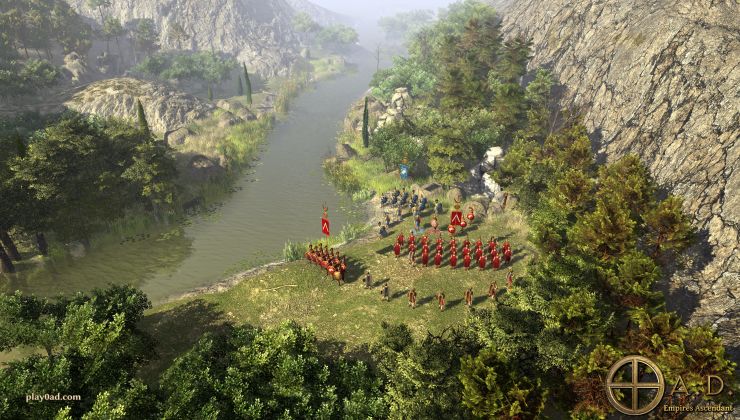Up for helping to improve Ubuntu Linux and get it into shape for more gaming? Now is your chance, as Canonical are hiring exactly for that. They did say only recently that they were going "all in" with gaming on Ubuntu, when they announced their testing Snap package for Steam and of course there was more to come.
The new role mentions they are "seeking Software Engineers to join the Ubuntu Gaming Experience team and be part of our mission to ship the best open source operating system in the world". What the heck is this team anyway? Well, as they explain, they're hiring to create a team that is focused on "performance, compatibility and user experience for gamers".
People in this role will "work with open source projects like Proton and partners like Unity to improve the gaming experience for Ubuntu users around the world, as well as the wider Linux gaming ecosystem in general" — so it's a wide ranging job and it appears Canonical want to get people involved directly in improving the likes of Wine and Proton, Mesa drivers graphics drivers and more as you need to be "effective working with low-level libraries, drivers, and the Linux graphics, sound and input stacks".
The good news is that it's a remote position, so pretty much anyone with the experience needed can apply to improve gaming on Linux and Ubuntu for everyone.
No mention of salary or benefits?
Don't worry you'll be a ROCK STAR get paid in plenty of EXPOSURE. You can't pass up this GREAT OPPORTUNITY. Ho ho ho
No mention of salary or benefits?
Don't worry you'll be a ROCK STAR get paid in plenty of EXPOSURE. You can't pass up this GREAT OPPORTUNITY. Ho ho ho
This looks like a paid position. Are you suggesting they're not paying a salary for this role??
It’s too bad that Debian is so focused on politics of how Debian should operate so much that packages can’t even make it into Sid fast enough that it blew their chances with Valve and Ubuntu has to pick up the pieces.What are you referring to?
People can whine about Snaps (yes I'm not a huge fan of them but there are far worse things) but this is overall a very good thing. I hope they find someone talented who can make a difference.
And for the record i've not had problems with snaps. They make programs run secure in a sandbox and have all needed whatever version of distro you might have. If a Firefox snap at the moment launches slowly, bah, it will be fixed.
People love to complain and critisize much without helping the issue they complain about at all
No mention of salary or benefits?
Don't worry you'll be a ROCK STAR get paid in plenty of EXPOSURE. You can't pass up this GREAT OPPORTUNITY. Ho ho ho
This looks like a paid position. Are you suggesting they're not paying a salary for this role??
There has been a push recently for organizations who post job opportunities to respect everyone's time by giving an expected salary.
If I'm making $X, and I go through the effort and time of applying for a job only to discover that the pay is $X/2, and I'm not willing to take that kind of pay cut, then we just wasted our time.
So no, there is no suggestion of a absence of salary so much as the need to expend more effort to find out if the normal effort of applying for a job is worth it.
So no, there is no suggestion of a absence of salary so much as the need to expend more effort to find out if the normal effort of applying for a job is worth it.
That said, for a global company, I appreciate it can be difficult to post such a thing.
Maybe in some countries the salary can be reasonably $X, and in others it can be $X*2 or $X/2, and in some countries certain benefits are just not needed (healthcare in a country that provides it universally vs a country that does not, for example).
You could probably just have edited your first post, rather than quote-posting yourself!So no, there is no suggestion of a absence of salary so much as the need to expend more effort to find out if the normal effort of applying for a job is worth it.
That said, for a global company, I appreciate it can be difficult to post such a thing.
Maybe in some countries the salary can be reasonably $X, and in others it can be $X*2 or $X/2, and in some countries certain benefits are just not needed (healthcare in a country that provides it universally vs a country that does not, for example).
But yeah, your point about Canonical being a global company is entirely valid. When you posted in $, you're implying an American position, and that's not what Canonical is about, really. So in what currency do you suggest salary when you're willing to recruit from literally anywhere in the world?
Separately, I work in Finance, and you'll never, ever, get salaries even mentioned until the second round of interviews, unless the position is (extremely) senior. It doesn't even come up in first-round interviews. Perhaps that's unique to the vertical (I've only ever worked in Finance, as a cyber security specialist), but I can tell you that if a first-round candidate asked about salary expectations in the interview, we wouldn't even know how to answer, generally. The first round interviews are about team fit, challenge and appropriateness for the role. Salary doesn't even enter into it.
But I can see how it probably should.
What are you referring to?
SteamOS v1 and v2 were Debian based (and outsourced even). This meant that Valve assisted with a base distros development. Ubuntu would have benefit from these improvements if v3 (Valve internal Steam OS) were still Debian based. Debian package ecosystem is notoriously gatekept and difficult for various reasons. So Valve chose an Arch base instead.
I can't speak to the veracity of that claim. I doubt we'll ever know for sure why Valve went with an Arch-based over Ubuntu, but I certainly doubt it's anything to do with Debian's "gatekeeping". That gatekeeping as you call it, is often referred to as "quality control". Gatekeeping, in this context, is a good thing. And there are still lots and lots of ways around it (PPAs, forks, patchsets), so I doubt it's why Valve went with Arch instead.What are you referring to?
SteamOS v1 and v2 were Debian based (and outsourced even). This meant that Valve assisted with a base distros development. Ubuntu would have benefit from these improvements if v3 (Valve internal Steam OS) were still Debian based. Debian package ecosystem is notoriously gatekept and difficult for various reasons. So Valve chose an Arch base instead.
Not my area of expertise though. Perhaps you're right. But it sounds like an oversimplification of a very complex landscape.
I can't speak to the veracity of that claim. I doubt we'll ever know for sure why Valve went with an Arch-based over Ubuntu, but I certainly doubt it's anything to do with Debian's "gatekeeping". That gatekeeping as you call it, is often referred to as "quality control". Gatekeeping, in this context, is a good thing. And there are still lots and lots of ways around it (PPAs, forks, patchsets), so I doubt it's why Valve went with Arch instead.
Not my area of expertise though. Perhaps you're right. But it sounds like an oversimplification of a very complex landscape.
Valve already publicly stated that lack of recent packages in Debian is why they switched to an Arch base so no mystery there. Debian while it’s difficult package process can guarantee quality, that same gatekeeping can also push package maintainers away which doesn’t produce anything. Sure there’s a multitude of reasons but results are the same, packages take a while to get through to Debian.
Ubuntu on the other hand has has so many additions from Canonical that it makes sense why Valve would target something a little less proprietary-esque like Arch.
I was tempted, but so many bad reviews on glassdoor about working atmosphere being toxic because of the CEOI found the same. Not to mention I don't expect it is a long term job. It will only last until Canonical loses interest again.
Interesting - I hadn't them state that. They publicly said that? Sounds like the sort of thing that a lot of people would have defended, cos honestly it sounds pretty baseless.I can't speak to the veracity of that claim. I doubt we'll ever know for sure why Valve went with an Arch-based over Ubuntu, but I certainly doubt it's anything to do with Debian's "gatekeeping". That gatekeeping as you call it, is often referred to as "quality control". Gatekeeping, in this context, is a good thing. And there are still lots and lots of ways around it (PPAs, forks, patchsets), so I doubt it's why Valve went with Arch instead.
Not my area of expertise though. Perhaps you're right. But it sounds like an oversimplification of a very complex landscape.
Valve already publicly stated that lack of recent packages in Debian is why they switched to an Arch base so no mystery there. Debian while it’s difficult package process can guarantee quality, that same gatekeeping can also push package maintainers away which doesn’t produce anything. Sure there’s a multitude of reasons but results are the same, packages take a while to get through to Debian.
EDIT: All I can find, personally, is from this very site, where Valve's Lawrence Yang note that they moved to Arch-based simply to enjoy the benefits of a rolling-release, which would help speed development.
Ubuntu on the other hand has has so many additions from Canonical that it makes sense why Valve would target something a little less proprietary-esque like Arch.Proprietary-esque? What the hell does that mean?
Last edited by scaine on 20 May 2022 at 10:18 am UTC
Proprietary-esque? What the hell does that mean?
Canonical adds Canonical made software/features by default to Canonical’s OS. Snap packages come to mind.
Last edited by itscalledreality on 20 May 2022 at 3:27 pm UTC
Proprietary-esque? What the hell does that mean?
Canonical adds Canonical made software/features by default to Canonical’s OS. Snap packages come to mind.
Anyone can use snaps. Nothing proprietary about them. The back-end is closed-source, but available to use by anyone. I've covered this before.
I wish I knew where all the Canonical hate comes from. Redhat doesn't get this shit for Fedora. SUSE gets a free pass. I've always wondered why folk are so quick to jump on this particular bandwagon.










 How to set, change and reset your SteamOS / Steam Deck desktop sudo password
How to set, change and reset your SteamOS / Steam Deck desktop sudo password How to set up Decky Loader on Steam Deck / SteamOS for easy plugins
How to set up Decky Loader on Steam Deck / SteamOS for easy plugins
See more from me